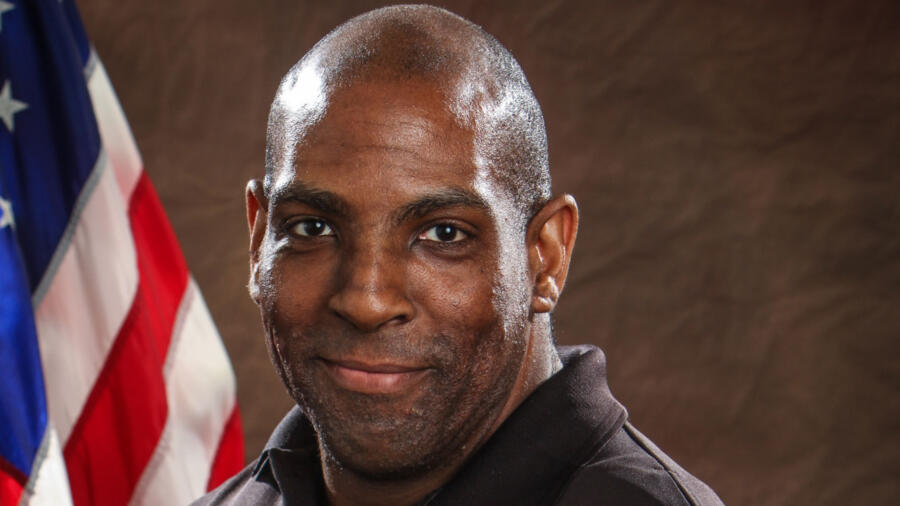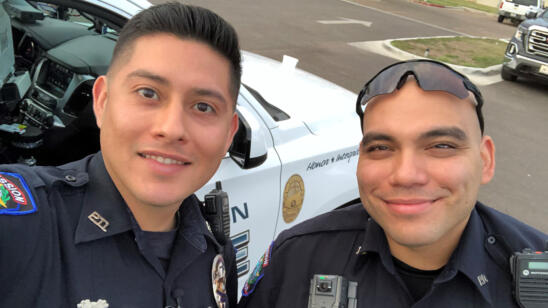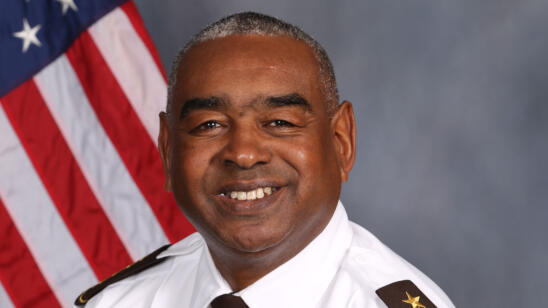Senior Deputy Garo Brown is part of the Community Action Team (C.A.T.) in Richland County, South Carolina., one of eight departments featured on Live PD. The law-enforcement vet spoke with A&E True Crime about his unit’s relationship with the public, and how technology makes his job both safer and more fun—which might mean posting photos of his kitchen “science experiments” on Instagram: “Those protein pancakes? They taste better than they look!”
You are a seriously buff guy. Does your physique affect how people behave around you?
It makes my job easier. First, I can calm people down just kind of by showing up, because most people—unless they’re drunk—listen to me when I start throwing out commands.
I do presentations for at-risk youth, or career fairs, and of course a lot of kids… They want to squeeze and poke and know how much I bench press. So I think it helps me, because it keeps them interested. I can keep their attention, even if I’m talking about things they normally might start to get bored with. But because to them, I look like some kind of superhero, they’ll hang around.
The C.A.T. program is a source of pride for the Richland County Sheriff’s Office. You have dozens of open public meetings every month.
That is something we are at the forefront of, and the meetings you see online don’t even include community events we go to. We get invited to career fairs, neighborhood block parties… So people have taken that community policing idea and run with it. They love it. And it’s great, because they don’t only see us when we’re putting someone in jail. They get to see us in all different situations. And most of those situations are fun.
It’s clear members of the team are meant to be accessible.
We each have a department-issued cell phone—and we give out that number. We let (the public) have access to us—not with just meetings, but through our Web site, e-mails and phones. They’ll get in touch and say: ‘You know, I think 123 Smith Street… I think they might be selling drugs out of that house.’ So they give us information that allows us to do our job. I’ve been in the department since 2006, and it’s been like that as long as I’ve been there.
What’s a favorite moment from ‘Live PD’?
The most memorable one for me is from the first (episode) I was on. There were some guys out there, and I believed they were getting ready to rob someone. And when I pulled up, I heard guns hitting the ground and getting kicked under the cars.
And one of the guys just takes off. So, I chased him over a fence and had to tackle him—and he had a bag of crack in his hand. And he said to me that the gun in his waistband was ‘licensed.’ And I said: ‘Well is that licensed crack in your hand, also?’ He was running so hard he forgot to drop it.
Outside of C.A.T., you’re also working on a degree in computer technology. Why?
That was my first career choice, because I love taking things apart and putting them back together. When I had my first little raggedy cars, I was putting in my own stereo systems… I was always more interested in the hardware side of things. And I still am. Now, I take something apart in a heartbeat. Sometimes I can put it back together, and sometimes I can’t. But I’ll try.
You’re active on Twitter and Instagram. Is technology your friend on this job?
Definitely. I originally started down in a tiny department in Orangeburg (South Carolina), and all you had was a radio that was the size of a brick, and one switch to turn on your blue light. You look at cars now, there’s so much stuff there’s hardly room to fit a person. But it’s good, because technology makes police work so much safer. The things I remember down in Orangeburg…some of those places, you needed a helicopter to find you if you got lost. We didn’t have GPS, or emergency buttons you could press if you got into trouble. So think about it now, and imagine if something bad happened and you needed backup? Well, good luck.
What kind of impact has the show had on the department?
I don’t want to steal it from him, so I’ll give (Deputy Lt.) Danny Brown credit for it. We were talking one day, and he said he notices that people who wouldn’t normally speak to the police will do that now, because of the show.
Yeah?
Yes! They come up and say ‘I saw you do this,’ or ‘I was watching and wanted to ask a question about this.’ And I mean, these are guys who a year ago hated the police. I think the show lets people know that the cops aren’t just out to shoot people, or take them to jail.
What attracted you to law enforcement?
I was not one of those kids saying: ‘Hey, I want to be a police officer!’ It’s just that I knew, once I got in my 20s, I was gonna do either the military or the police. I have a 9/11 tattoo on my calves. I always just feel that, as bad as things can get, there’s also a human spirit—the things we do to bring each other back up. And I think that’s what made me want to get into police work: I was trying to show there are people who will run into a building where someone’s shooting, in order to save people they don’t know. There are people like that out there. I wanted to be one of them.
Related Features:
Dan Abrams, Tom Morris Jr. and Sgt. Sean ‘Sticks’ Larkin Answer Questions from the Live PD Nation
Chief Randy Fandal on How the Slidell Police Department Uses ‘Live PD’ as a Learning Tool
Sgt. Sean ‘Sticks’ Larkin on How Surveillance Footage Helps Police Investigations
Deputy Sheriff Danny Brown: Connecting With Community Members—and Other ‘Live PD’ Cops
From Police Work to Daddy Time: An Interview with Sgt. John Curley of ‘Live PD’
Read More ‘Live PD’ Interviews With Dan, Tom, Sticks and ‘Live PD’ Officers


